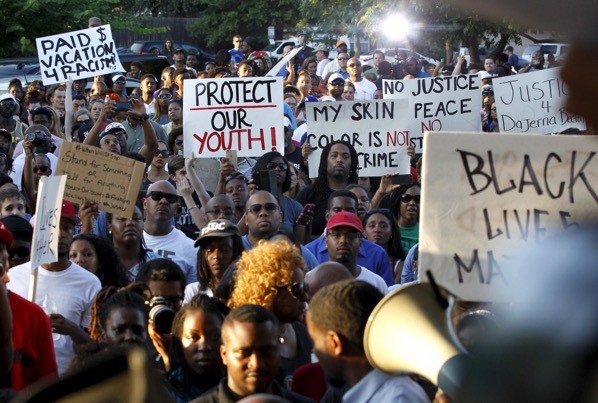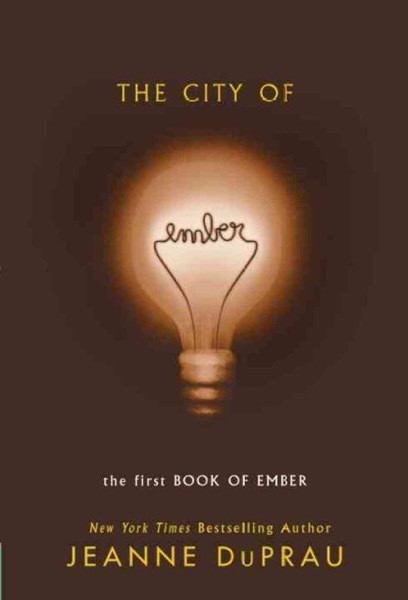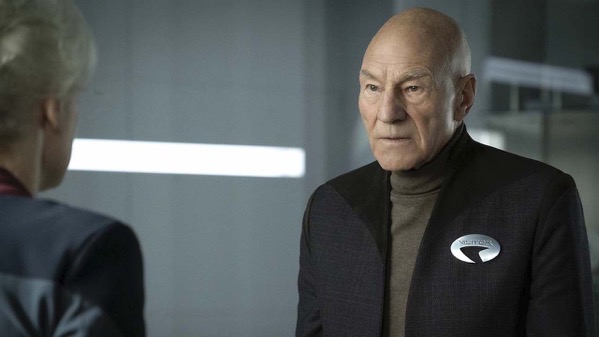📝 “Weren’t black people in the USA freed over 150 years ago? What is still happening in modern USA?”

Yes.
Let’s start with some history. Reconstruction after the American Civil War began immediately with Abraham Lincoln’s federal government imposing the Thirteenth Amendment to completely abolish slavery everywhere in the USA. While Northern states ratified it quickly, Lincoln convinced, cajoled and forced previously slave-owning states to ratify it before they would be granted aid and resources to rebuild. Most did so grudgingly.
Less than a month after states had begun to ratify the Amendment, Lincoln has been assassinated and his Vice President Andrew Johnson, who was strongly opposed to his policies, decided instead to be lenient towards ex-Confederates so as to rush the defeated states back into the Union to get back onto the international stages as soon as possible. While he sought to ratify this Amendment as soon as possible, he vetoed bills that would give the newly-freed black people full equality as American citizens with the ability to vote. The fact that he was an ex-slave owner himself and associated with many more could have played a part in his decision, but frankly it just wasn’t high on his list of priorities.
Ulysses S. Grant, the ex-Union top General became president after that and overrode a lot of Johnson’s actions and enforced the new equality laws and crushed the KKK using Northern Union troops, but these troops were eventually withdrawn from all states by 1876, leaving southern black people to their fates. In some Southern states black men (5) were elected to Congress, but by the turn of the century, each previously seceded state constitution had been successfully changed to disenfranchise black voters and return to a complete white rule, something that the majority of their leaders had favoured all along.
Next you have the Jim Crow era. I’m sure you’ve heard of how well that went for black people. But don’t worry, those African-Americans were now ‘free’. Yay! But really, due to high rent and low pay for any work they did, as well as making travel as difficult as possible for them, coupled with lynchings and no real legal or democratic representation, freedom for African Americans was effectively the same as slavery. If you haven’t, read Harper Lee’s To Kill a Mockingbird or watch the film. It gives you a good idea of how justice operated for black people during the Jim Crow era through the eyes of a white child.
But how does that impact on the modern USA you ask?
By the early 1960s, improving Civil Rights in the USA was a cornerstone of Democratic Party President John F. Kennedy’s manifesto, and just like after Lincoln’s assassination, after Kennedy’s in 1963, another Vice President Johnson became the man who had to support more rights for African Americans knowing many around him weren’t sure it was necessary. It would prevent him from receiving support from white Conservatives, and could actually lead to more violence against African Americans. However, he was successful in passing the law by convincing enough of the opposition party to back it. He is reputed to have said at the time:
"I think we just delivered the South to the Republican party for a long time to come”
This continues to be largely true over fifty years later.
The Jim Crow era only really ended with the passing of these laws. Is that modern enough?
Even after that the segregation and anti-miscegenation (racial mixing and blood purity) laws these states had until 1967! Is that modern enough?
Again, I suppose you think that this is only really those crazy racists down in the south, beating up on their African-American neighbours as they are wont to do?
The entire US electoral system has been, continues to be and is now increasingly rigged against African Americans. Gerrymandering and systemic voter restrictions, removal of polling stations close to mostly African American neighbourhoods, as well as downright lies about apparent voter ID fraud are all in the US-wide Republican playbook and have been for years. A playbook which they learned from the Jim Crow-era southerners.
This means that everything up to the Electoral College is skewed in favour of Republican areas with more dispersed populations, while those with large urban centres with higher African American populations have their votes reduced and marginalised.
There’s a lot of media flying around the internet with violence. This video involves no violence at all, but I think that it successfully explains why African Americans have every possible reason to be upset - the US system has been working exactly as designed - by white supremacist slave owners and their descendants.
Antonio French’s Twitter Account
Look. It’s been a few years since I taught this at school, but I can talk about this all day. It’s important to understand just how bad things are over there for African-Americans and I haven’t even touched on indigenous Americans. I think the vast majority of people would like to see things improve in the US as well as all around the world, and there are many different ways to do this right now including donating your money or your time, but a good basis is always education. We all need to teach ourselves why this situation is the way it is and why it is wrong. Without that it’s difficult to work to improve things.
So focusing on black lives in the USA:
I would recommend watching 13th on Netflix. It’s an award-winning documentary which will explain systemic and historic racism in the USA and how that has compounded how far behind black people are as time has gone on.
Or the movie Loving which dramatises a couple who were arrested on the basis of those miscegenation laws in the 1960s.
And if you want to read a book, to find out about how engrained racism is in the justice system, a good book on that would be Just Mercy by Bryan Stevenson. It takes you up to around about 2010. Or again watch the film with Jamie Foxx and Michael B. Jordan. It misses out some stuff, but you get a flavour of what has been going on.
Each tiny concession has to be fought for tooth and nail and the road is paved with the damaged and ended lives of the ‘uppity blacks’ who dared to fight for what they deserved.
Don’t feel guilty for starting small and just watching some TV to learn more. If you can then recommend more people in your social sphere watch them too, the difference you can make can become great.

